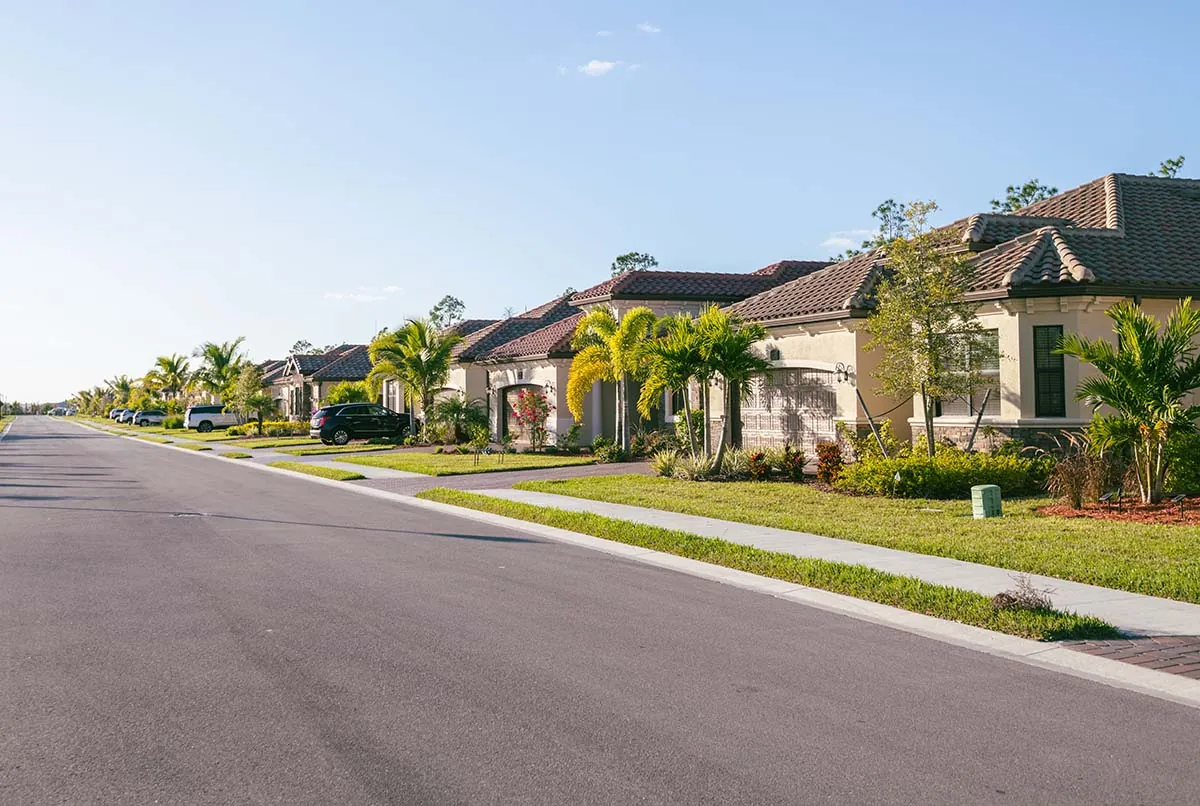Domestic violence is defined in Florida (Fla.Stat. § 741.28) as any criminal offense, including assault, aggravated assault, battery, aggravated battery, sexual assault, sexual battery, stalking, aggravated stalking, kidnapping, or false imprisonment that results in death or injury by one family or household member against another family or household member. Domestic violence offenses in Florida can be any of the following:
- Domestic Assault
- Domestic Battery
- Stalking
- Cyberstalking
- Child Abuse
- Aggravated Child Abuse
- Child Neglect
- Domestic Battery by Strangulation
- Kidnapping
- Unlawful Imprisonment
A conviction for a domestic violence offense can result in serious penalties and repercussions, including public ridicule, a criminal record, an inability to pursue certain professional or occupational opportunities, an ineligibility to receive certain governmental funding or financial aid, an inability to possess or own a firearm, jail or prison sentence and/or fines.
Gainesville Domestic Violence Lawyer
If you have been charged with a domestic violence offense in Gainesville, or any of the surrounding areas in Florida, including Ocala, Alachua and Lake City, contact the Galigani Law Firm. Dean Galigani is an experienced criminal defense attorney and is knowledgeable in all areas of Florida’s domestic violence laws. Call the Galigani Law Firm today for a free consultation at (352) 375-0812 about your domestic violence allegations.
Florida Domestic Violence Information Center
- Domestic Violence Terms and Definitions in Florida
- Florida Laws for Domestic Violence Crimes
- Penalties for Domestic Violence Charges in Florida
- Florida Defense to Domestic Violence Crimes
- Can You Expunge a Domestic Violence Charge in FL?
- How to Get Your Domestic Violence Charges Dismissed
- Florida Domestic Violence Resources
Domestic Violence Terms and Definitions in Florida
Domestic violence charges in Florida use many terms that have special definitions under Florida law. Some of the most commonly used domestic violence terms are listed below.
- Domestic Violence Injunction – This injunction is a court order that prohibits an individual who has allegedly committed domestic violence from doing something or requiring them to do something. This injunction is commonly issued in a protective order hearing, and is more commonly known as a protective order or restraining order.
- Protective Order Hearings – Protective order hearings are court hearings where the judge determines if a protective order should be ordered for individuals in a dating or family relationship. The individual who allegedly committed the domestic violence and the alleged victim are able to present their case, evidence and any witnesses at the hearing.
- Cyberstalking – This type of stalking occurs when an individual communicates with another person through e-mail or other electronic modes of communication for no purposeful reason except to harass the other person, and causes the alleged victim substantial emotional distress.
- Dating Violence – This form of violence occurs between two people who have a continuing intimate and romantic relationship or have recently had this type of relationship within the past six months. The dating relationship must have been defined by affection or sexual intimacy, and it must have been for a continuous period of time.
- Family or Household Member – Individuals who are family or household members can be spouses, former spouses, individuals who are related by blood or marriage, individuals who have children together, or anyone who has lived with another person as if they were a family member or who has resided with someone as a family member in the past.
- Harass – This term means an individual directs conduct that has no real purposes towards a specific person, and the conduct causes that person severe emotional distress.
Florida Laws for Domestic Violence Crimes
Some of the most common domestic violence charges include the following:
- Assault – Fla. Stat. § 784.011 – An individual commits this offense if they intentionally commit an act of violence or threat to cause violence against another person. The person causing the assault has to be able to commit the threatened act, and the other individual must be afraid the act is about to happen. This offense is generally punishable as a misdemeanor of the second degree.
- Aggravated Assault – Fla. Stat. § 784.021 – An individual can be charged with this offense if they assault another person with a deadly weapon or with the intent to cause a felony against the other individual. A conviction for this offense can result in a felony of the third degree.
- Battery – Fla. Stat. § 784.03 – An individual can be charged with this offense if they intend to touch someone against their will, and do so, or touch another person with the intent to harm them. This offense is generally punishable as a misdemeanor of the first degree.
- Aggravated Battery – Fla. Stat. § 784.045 – An individual can be charged with this offense if they intentionally commit a battery against another person with a deadly weapon, and the battery results in great bodily harm, permanent disability, or disfigurement to the other person. An individual can also be convicted of this offense if they commit a battery against a pregnant woman they knew or had reason to know was pregnant. A conviction for this offense can result in a felony of the second degree.
- Felony Battery – Fla. Stat. § 784.041 – An individual can be charged with this offense if they commit a battery against another person and cause great bodily harm, permanent disability or disfigurement. A conviction for this offense can result in a felony of the third degree.
- Domestic Battery by Strangulation – Fla. Stat. § 784.041(2)(a) – An individual can be charged with this offense if they knowingly and intentionally prevent the normal breathing or circulation of a person they are in a dating or family relationship with against their will, and they cause great bodily harm to the other person. This offense is generally punishable as a felony of the third degree.
- Stalking – Fla. Stat. § 784.048 – An individual can be charged with this offense if they willfully and maliciously repeatedly follow, harass or cyberstalk another person. This offense is generally punishable as a misdemeanor of the first degree.
- Aggravated Stalking – Fla. Stat. § 784.048(3) – An individual can be charged with this offense if they commit a stalking offense, but also make a threat against the other person that causes them to reasonably fear they are in danger of death or serious bodily injury. A conviction for this offense is punishable as a felony of the third degree.
Penalties for Domestic Violence Charges in Florida
According to Fla. Stat. §§ 775.082 and 775.083, the penalties for domestic violence offenses in Florida can result in the penalties listed below. These offenses are the statutory minimum penalties, and can increase or have mandatory minimum sentences depending on the offense, the victim, where the offense occurred, whether a weapon was used during the commission of the offense, and whether the offender has a previous criminal conviction.
- A misdemeanor of the second degree can result in a jail sentence up to 60 days and/or a fine up to $500.
- A misdemeanor of the first degree offense can lead to a jail sentence up to one year and/or a fine not more than $1,000.
- A conviction for a felony of the third degree can result in a prison sentence up to five years and/or a fine not more than $5,000.
- Felonies of the second degree can lead to a prison sentence up to 15 years and/or a fine not in excess of $10,000.
- A conviction for a felony of the first degree offense can lead to a prison sentence up to 30 years or life and/or a fine up to $10,000.
If an individual pleads guilty, nolo contendere or has had a judgment withheld for any domestic violence charges, they must be placed on probation for one year. Additionally, individuals who plead guilty, nolo contendere or have had a judgment withheld for any domestic violence charges must attend a batterer’s intervention program unless the court determines the program is unnecessary.
For any domestic violence offense where the court finds the alleged offender guilty of intentionally causing bodily harm to the victim, the alleged offender must spend at least five days in jail. However, the court can impose a lengthier sentence, probation or community control.
Florida Defenses to Domestic Violence Crimes
Your Gainesville criminal defense attorney may be able to help you identify certain defenses to your domestic violence offense that can reduce your charges or result in a complete dismissal of your case. However, the following defenses do not apply to every situation, and whether they will apply to your circumstances depend on the facts that are unique to your case. Therefore, it is important to consult with your attorney who can help you determine whether a defense is applicable in your situation.
Self Defense – Sometimes an alleged victim of domestic violence may have actually been the person who instigated the domestic violence. If you were provoked or attacked, self defense may have been necessary to use. In these situations, it is important to hire an attorney to represent your best interest, and demonstrate you were actually the victim and needed to use self defense.
Defense of Others – It may be necessary to use physical force to prevent someone you have a family relationship with if you reasonably believed they were going to cause harm to someone else.
False Allegations – Sometimes alleged victims will falsely claim a person they have a family relationship with committed domestic violence against them. There are a number of reasons they can make these false allegations. For example, they may do it out of spite, to gain custody of a child or children, or when they are going through a messy divorce. No matter what the reason is, an attorney will be able to help you defend against these false allegations and possibly have your charges dropped.
Lack of Intent – Intent to cause injury to someone else is a required element for many domestic violence charges. If the alleged offender did not have the required intent, their charges could be dismissed or reduced to a less serious charge.
Can You Get a Domestic Violence Charge Expunged in Florida?
Florida does offer eligible offenders the chance to expunge their records so no one can access them. Unfortunately, domestic violence convictions cannot be sealed or expunged. Once you plead guilty or no contest to a domestic violence charge, you will lose any chance to expunge or seal your record. Thankfully, you can keep your eligibility for expungement open if you aren’t convicted of your charges.
If the court adjudicates your guilt, dismisses your charges, or the verdict is not guilty, then you’ll be able to seal or expunge your criminal record. The most common of these is if the judge adjudicates guilt to avoid a conviction. When a judge adjudicates your guilt, it means you can have your charges dismissed if you follow the conditions of your adjudication. Essentially, it’s a type of probation without any conviction on your record. Once you’ve finished the conditions of your adjudication, the judge will dismiss your charges.
Having an attorney on your side so you can avoid conviction is essential. An attorney can negotiate with the prosecution, alleged victim, and judge and convince them the best course of action is to pursue adjudication. That way you can seal or expunge your criminal record afterwards and never have to face this issue ever again.
How to Get a Domestic Violence Case Dismissed in Florida?
It can be incredibly daunting and even terrifying to learn you’re facing domestic violence charges. The penalties associated with the crime are nothing to take lightly and the collateral consequences it may bring towards your career and future goal could be even worse. That is why if you’ve been arrested for domestic violence, it’s imperative you do everything in your power to fight your criminal charges.
The most effective way to fight domestic violence accusations is to hire legal representation. An experienced and skilled domestic violence attorney can assess your legal options and begin building a formidable defense for your case. They can present evidence as to why you weren’t the aggressor, bring in experts to prove their arguments, and any other strategy that could jeopardize the prosecution’s case. If the evidence isn’t in your favor, your attorney can negotiate with prosecutors and procure a reduced charge/sentence for your charges.
It’s important to remember you cannot get a domestic violence case dropped simply because the victim no longer wants to press charge. The court recognizes the power abusers have over their victims, so it’s unlikely they’ll dismiss the charges simply on that fact alone. The best way to have your domestic violence charges dismissed is to hire experienced legal counsel.
Florida Domestic Violence Resources
Florida Statutes Online – This link is to Chapter 784 of the Florida Statutes, which contains many of the state’s laws regarding domestic violence. This chapter defines all prohibited domestic assault and battery offenses and other domestic violence-related crimes and the penalties for committing such offenses.
Florida Department of Children and Families – This Florida government department provides resources, information and links to individuals who have been victims of domestic violence, promotes prevention of domestic violence, and provides various programs regarding family issues. The Circuit 8 office is located at:
1000 NE 16th Ave., Bld. J, 1/03Gainesville, Florida 32601
Phone: (352) 955-5010
Peaceful Paths Domestic Abuse Network – This nonprofit organization seeks to stop domestic violence and make informed and healthy decisions regarding relationships. This group provides a safe and supportive environment, supplies information and resources, and teaches parents and children non-violent alternatives to resolving disputes. The organization can be contacted at:
2100 Northwest 53rd Ave.Gainesville, Florida 32653
Phone: (352) 377-8255
An Abuse, Rape, Domestic Violence Aid and Resource Collection – This national non-profit organization, also known as AARDVARC, seeks to educate individuals on all matters pertaining to domestic violence, provides resources for all matters pertaining to domestic violence throughout Florida, and aims to reduce instances of domestic violence.
Galigani Law Firm | Florida Domestic Violence Attorney
Contact the Galigani Law Firm today for a consultation about your charge of domestic violence throughout Alachua County in Florida. Dean Galigani is an experienced Gainesville criminal attorney who will make every effort to help you achieve the best possible outcome in your particular situation. Contact the Galigani Law Firm at (352) 375-0812 for a consultation about your domestic violence crime throughout the counties in Florida, including Marion County, Levy County, Columbia County and Gilchrist County.








